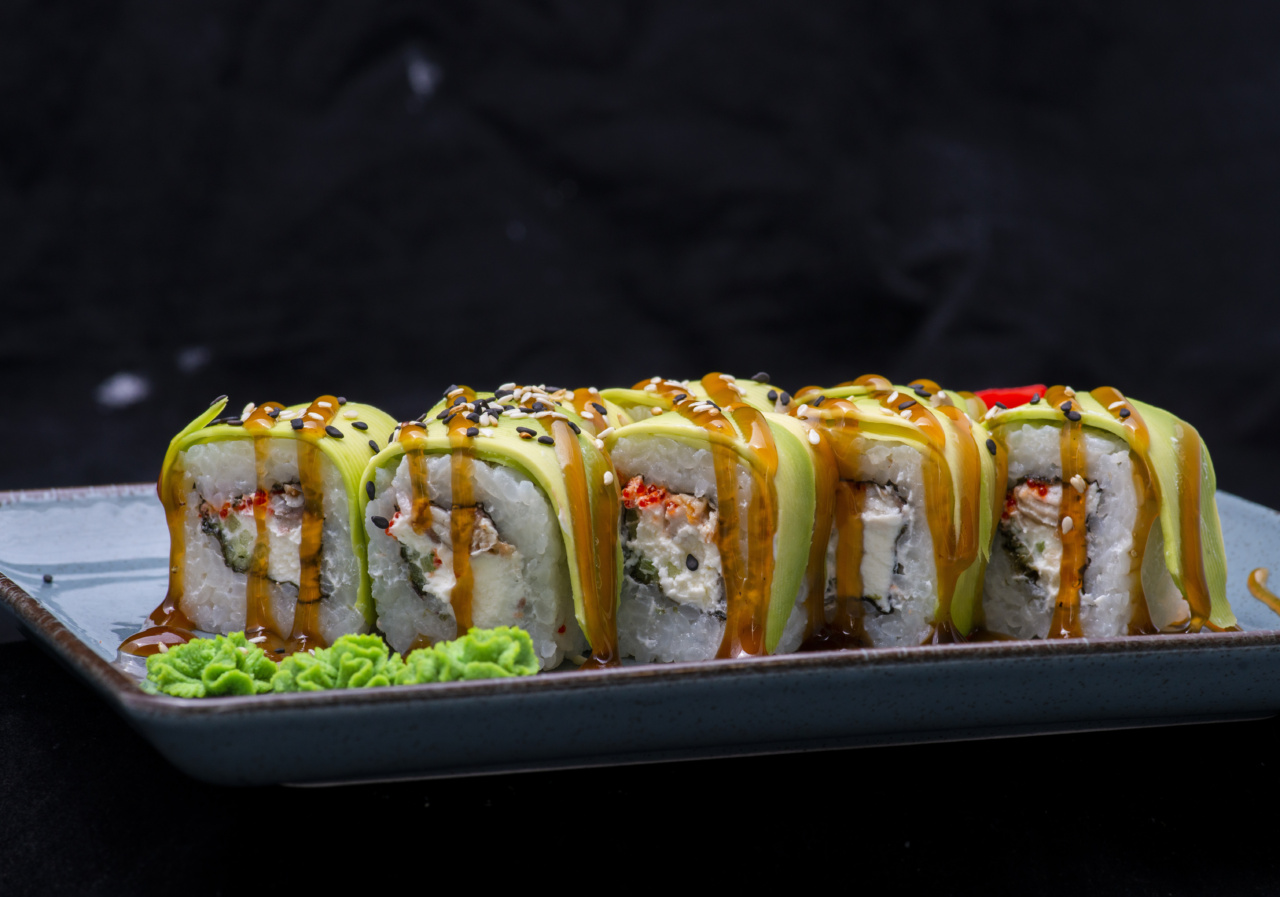During pregnancy, women are often advised to make dietary adjustments to ensure the health and well-being of both themselves and their developing babies. One common question that arises is whether it is safe to consume sushi while pregnant.
Sushi is a popular Japanese dish consisting of vinegared rice combined with various ingredients such as raw or cooked seafood, vegetables, and sometimes tropical fruits. It is crucial to address the potential risks and benefits associated with consuming sushi during pregnancy, as well as provide some guidelines for making informed choices.
The Concerns Surrounding Sushi Consumption During Pregnancy
One of the primary concerns associated with consuming sushi during pregnancy is the potential risk of exposure to harmful bacteria and parasites.
Raw or undercooked seafood, such as fish or shellfish, can contain bacteria and parasites that may cause foodborne illnesses like listeria, salmonella, or toxoplasmosis.
The Risks of Listeria during Pregnancy
Listeria monocytogenes, a bacteria commonly found in raw seafood, can potentially lead to a severe illness called listeriosis.
Listeriosis poses a particular risk to pregnant women, as it can lead to miscarriage, preterm labor, infection in the newborn, or even stillbirth. This risk is due to the increased vulnerability of the immune system during pregnancy.
Mercury levels in Fish and Their Impact on Pregnancy
Another concern with consuming sushi during pregnancy is the potential exposure to mercury. Some types of fish, especially large predatory fish like shark, swordfish, king mackerel, and tilefish, can contain high levels of mercury.
Mercury is a heavy metal that can be harmful to the developing nervous system of the fetus if consumed in excess. However, it is important to note that not all types of fish used in sushi contain high levels of mercury. Many sushi options, such as salmon and shrimp, are considered safe during pregnancy when consumed in moderation.
Safe Sushi Options for Pregnant Women
While it may be necessary to avoid certain types of sushi during pregnancy, there are plenty of safe options that can still be enjoyed. The following list highlights some sushi ingredients that are considered safe for pregnant women:.
1. Cooked Fish
Opting for sushi rolls made with thoroughly cooked fish, such as fully-cooked shrimp or crab, is a safe choice for pregnant women. It eliminates the risk of exposure to harmful bacteria and parasites commonly found in raw fish.
2. Vegetarian Sushi
Vegetarian sushi options, including rolls made with cucumber, avocado, or cooked vegetable fillings, are an excellent choice for pregnant women.
These options provide essential nutrients while avoiding any potential risks associated with raw or cooked seafood.
3. Cooked Seafood
Sushi rolls that incorporate cooked seafood, such as eel or octopus, are generally considered safe for consumption during pregnancy. However, it is essential to ensure that the seafood is thoroughly cooked to eliminate any potential risks.
4. Smoked Seafood
Smoked seafood, such as smoked salmon or trout, is typically considered safe for pregnant women. The smoking process effectively kills bacteria and parasites, reducing the risk of foodborne illnesses.
5. Sushi with Low Mercury Fish
Some types of fish used in sushi contain lower levels of mercury compared to others. Pregnant women should choose sushi options made with low mercury fish, such as salmon, trout, or sardines.
These fish are not only safe to consume but also provide essential nutrients like omega-3 fatty acids, which are crucial for the baby’s brain development.
Guidelines for Safe Sushi Consumption During Pregnancy
While some sushi options are considered safe during pregnancy, it is essential to follow some general guidelines to minimize potential risks. Here are some recommendations:.
1. Choose Reliable and Reputable Restaurants
When consuming sushi during pregnancy, it is crucial to select restaurants known for their high food safety standards. Reputable sushi establishments are more likely to use fresh ingredients and prepare them in a safe and hygienic manner.
2. Ensure Proper Food Storage and Preparation
Proper storage, handling, and preparation of seafood and other sushi ingredients reduce the risk of bacterial contamination. Restaurants should follow strict food safety protocols to ensure the sushi is safe for consumption.
3. Communicate Your Pregnancy Status
Inform the sushi chef or staff about your pregnancy. They can guide you on safe options and provide assurance regarding the freshness and safety of the ingredients used.
4. Moderation is Key
Like most foods during pregnancy, moderation is key. Even when consuming sushi made with safe ingredients, it is important not to overindulge. A balanced and varied diet is essential for the health of both the mother and the baby.
The Bottom Line
While there are concerns associated with consuming sushi during pregnancy, it is possible to enjoy this Japanese delicacy by following some essential guidelines.
Avoiding raw and high mercury fish, choosing reputable restaurants, and practicing moderation can help minimize any potential risks. Consulting with a healthcare provider is always advisable to address any individual concerns or specific dietary considerations during pregnancy.































